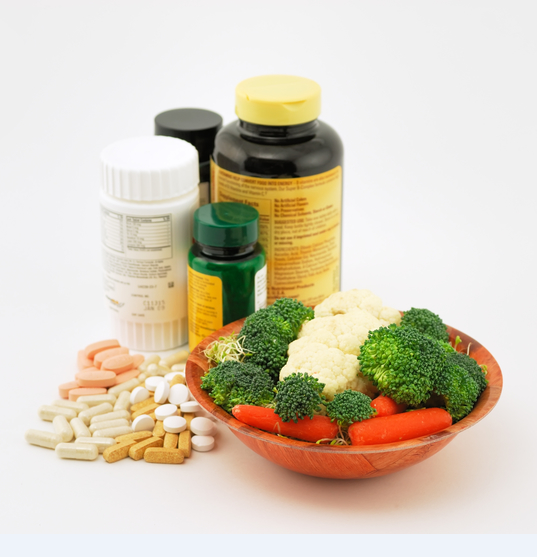Vitamin deficiencies make seniors more vulnerable to COVID-19
The Canadian Integrative Medicine Association (CIMA) released its Covid-19 Policy on May 5, urging health professionals to address underlying nutritional deficiencies in senior citizens who have been hardest hit by the novel coronavirus.

The 170-member physicians’ group recommends using Vitamin C, Vitamin D3 and zinc, which play important roles in the immune system.
Long Term Care homes (LTC) have accounted for more than 70 per cent of Canadian Covid-19 deaths, and CIMA doctors believe the cause lies partly with poor nutritional status of our elders, leading to weakened immune systems. CIMA cited multiple studies that prove supplements work and warned of the dangers of ignoring the importance of nutrition in maintaining good health.
“Waiting at the doors of the ICU is too late,” said Dr. Stephen Malthouse, a family doctor and president of CIMA. “Doctors should be recommending adequate doses of Vitamins C, D3 and zinc to enhance immunity. These supplements have been shown to work as anti-viral and anti-inflammatory medicines. Waiting until people are really sick is the wrong tactic.”
In 25 randomised controlled trials (total 11, 321 participants, aged 0 to 95 years) Vitamin D supplementation significantly reduced the risk of acute respiratory tract infection among all participants.
“Canadians should not be limited to handwashing and physical isolation alone,” Dr. Malthouse said. “There is more available. Vitamins and minerals play a role at every stage of our defense against infectious disease.
“Vitamin C has been studied in ICU patients and is now used in hospitals around the world intravenously as first line Covid-19 treatment. However, many Canadian hospitals do not stock IV Vitamin C in their pharmacies.
“Research shows that you need high doses to be effective, but these amounts are very safe,” Dr. Malthouse said. “Add Vitamin C to early hospital use of hydroxychloroquine, steroids, zinc and oxygen and you have a potent recipe for success against Covid-19. The key appears to be an early start and adequate doses.”
The CIMA policy statement encourages people to start taking Vitamin C, D3 and zinc to help prevent Covid-19. “A healthy population can better fight viruses,” said Dr. Malthouse, “and encouraging optimum nutrition protects the elderly. With no sun exposure, all Canadians are Vitamin D3 deficient by the end of winter.”
Vitamin D3 plays a role in inhibiting the cytokine storm that causes viral infections to become lethal, according to Dr. Aileen Burford-Mason, PhD. “It inhibits the immune system from going into overdrive.”
A 2017 Health Canada survey revealed that 1/3 of Canadians have low levels of vitamin D3. “The elderly, especially those cocooned indoors in extended care homes, are at high risk for deficiency,” says Dr. Burford-Mason, CIMA’s Public Health policy advisor. “These may be the unfortunate ones for whom the disease is fatal.”
The CIMA Policy also recommends zinc supplements. “Loss of taste and smell can be an early symptom of Covid-19 and is also a common sign of zinc deficiency,” Dr. Malthouse said. “Zinc becomes a powerful anti-viral agent after it is carried into cells by transporters, like hydroxychloroquine. Zinc disrupts viral replication.”
— Canadian Integrative Medicine Association (CIMA)

The 170-member physicians’ group recommends using Vitamin C, Vitamin D3 and zinc, which play important roles in the immune system.
Long Term Care homes (LTC) have accounted for more than 70 per cent of Canadian Covid-19 deaths, and CIMA doctors believe the cause lies partly with poor nutritional status of our elders, leading to weakened immune systems. CIMA cited multiple studies that prove supplements work and warned of the dangers of ignoring the importance of nutrition in maintaining good health.
“Waiting at the doors of the ICU is too late,” said Dr. Stephen Malthouse, a family doctor and president of CIMA. “Doctors should be recommending adequate doses of Vitamins C, D3 and zinc to enhance immunity. These supplements have been shown to work as anti-viral and anti-inflammatory medicines. Waiting until people are really sick is the wrong tactic.”
In 25 randomised controlled trials (total 11, 321 participants, aged 0 to 95 years) Vitamin D supplementation significantly reduced the risk of acute respiratory tract infection among all participants.
“Canadians should not be limited to handwashing and physical isolation alone,” Dr. Malthouse said. “There is more available. Vitamins and minerals play a role at every stage of our defense against infectious disease.
“Vitamin C has been studied in ICU patients and is now used in hospitals around the world intravenously as first line Covid-19 treatment. However, many Canadian hospitals do not stock IV Vitamin C in their pharmacies.
“Research shows that you need high doses to be effective, but these amounts are very safe,” Dr. Malthouse said. “Add Vitamin C to early hospital use of hydroxychloroquine, steroids, zinc and oxygen and you have a potent recipe for success against Covid-19. The key appears to be an early start and adequate doses.”
The CIMA policy statement encourages people to start taking Vitamin C, D3 and zinc to help prevent Covid-19. “A healthy population can better fight viruses,” said Dr. Malthouse, “and encouraging optimum nutrition protects the elderly. With no sun exposure, all Canadians are Vitamin D3 deficient by the end of winter.”
Vitamin D3 plays a role in inhibiting the cytokine storm that causes viral infections to become lethal, according to Dr. Aileen Burford-Mason, PhD. “It inhibits the immune system from going into overdrive.”
A 2017 Health Canada survey revealed that 1/3 of Canadians have low levels of vitamin D3. “The elderly, especially those cocooned indoors in extended care homes, are at high risk for deficiency,” says Dr. Burford-Mason, CIMA’s Public Health policy advisor. “These may be the unfortunate ones for whom the disease is fatal.”
The CIMA Policy also recommends zinc supplements. “Loss of taste and smell can be an early symptom of Covid-19 and is also a common sign of zinc deficiency,” Dr. Malthouse said. “Zinc becomes a powerful anti-viral agent after it is carried into cells by transporters, like hydroxychloroquine. Zinc disrupts viral replication.”
— Canadian Integrative Medicine Association (CIMA)










Comments